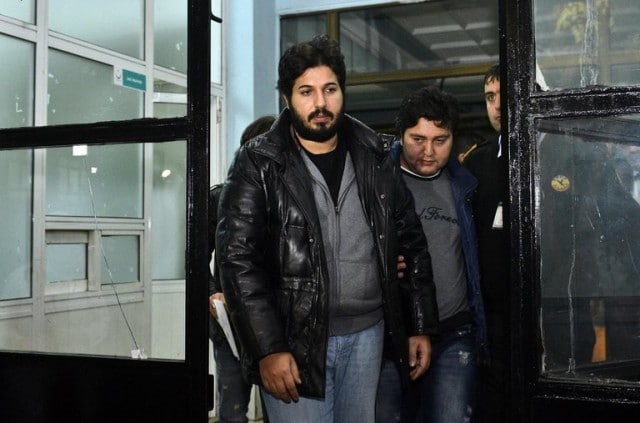Iran and Turkey are facing consequences from a high-profile sanctions-busting case, as a Turkish-Iranian gold trader cooperates with US prosecutors.
Reza Zarrab, who is being held by the authorities at an undisclosed location, pled guilty on October 26 in a New York City court to all seven counts of an indictment, including conspiracy to violate US sanctions against Iran. He began his testimony on Wednesday in the trial of a Turkish banker, Mehmet Hakan Atilla, charged with participation in a billion-dollar scheme to smuggle gold for oil.
Seven other defendants are being tried in absentia, including Turkey’s former Economy Minister Zafer Çağlayan and Suleyman Aslan, a former general manager of the Turkish state-owned Halkbank.
Zarrab said yesterday that he bribed one of the defendants, , 45 million Euros ($53.3 million) to set up a banking mechanism at Halkbank for the gold-oil transfer.
For weeks, the Turkish government of President Recep Tayyip Erdoğan, through statements and media outlets, has condemned the US treatment of Zarrab. Erdoğan raised the call in a telephone call with Donald Trump in September, and he portrayed the prosecution as a continuation of a 2016 coup attempt: “When that plot failed, they set up the same plot in the US.”
Prosecutor David Denton said in his opening statement on Tuesday that Turkish police had uncovered the bribery scheme in 2013, arresting Zarrab, Aslan, and others, but bribes “bought a cover-up” and Turkish officials purged police and prosecutors who had run the case, sending many of them to prison:
The same corrupt high-ranking Turkish officials instructed Zarrab to put up even more bribe money for the judges, millions and millions in bribes, so that everything could be made to go away.
Zarrab paid the money, co-conspirators got out of jail, and the case the Turkish police had developed was dismissed.
The FBI’s counterintelligence division ran its own investigation, leading to the US arrests of Zarrab and the seven other defendants.
On Tuesday, Turkish authorities responded by issuing an arrest warrant for a former opposition legislator, Aykan Erdemir, who is now with the Washington-based Foundation for Defense of Democracies. He was accused of supplying fake evidence to US agencies.

